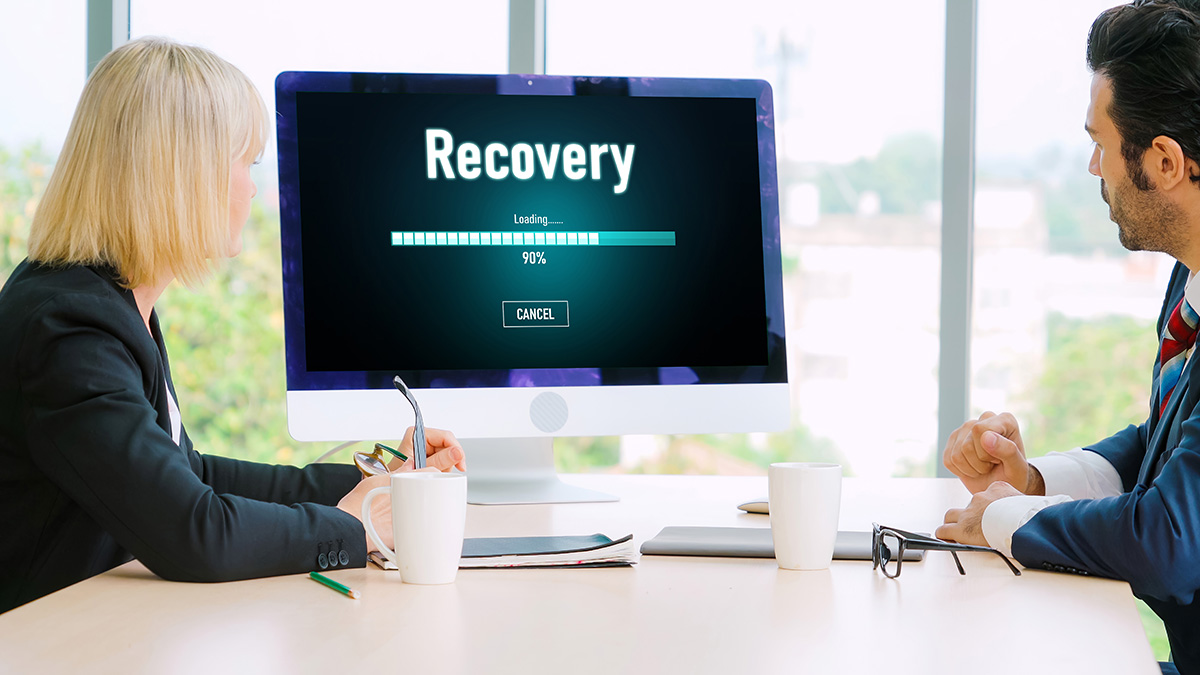Imagine waking up to find your business files locked by ransomware, your server hard drive failed, or an employee accidentally deleted key project data. Without a solid backup plan, recovering from these situations can be expensive, time-consuming, or even impossible.
Yet, many small businesses still rely on manual backups, aging hardware, or hope — which are not strategies at all.
In this post, we’ll break down why every business needs a backup plan, the difference between backups and disaster recovery, and how to build a strategy that actually works when you need it most.
💾 What Is a Business Backup Plan?
A backup plan is a system for regularly copying your important business data to another location so that you can restore it in case of loss, damage, or theft. But a good backup plan is more than just making copies — it’s about having a reliable, automated, and tested process in place.
✅ Key Backup Elements:
Automated backups (not manual copy/paste)
Off-site or cloud-based storage
Clear retention policies (how long backups are kept)
Routine backup testing and verification
Fast recovery options
🚩 What Happens If You Don’t Have a Backup Plan?
| Scenario | Without a Backup | With a Backup |
|---|---|---|
| Ransomware locks your files | Pay ransom or lose your data | Restore clean copies from your backups |
| Hardware failure on a server | Data loss, expensive recovery services | Quick restoration from recent backups |
| Employee accidentally deletes data | Permanent loss | Recover the missing files easily |
| Office fire, flood, or disaster | Total loss of on-site systems | Off-site/cloud backups keep your business running |
🛡️ Backups vs. Disaster Recovery: What’s the Difference?
Backups are copies of your data stored securely for safekeeping.
Disaster Recovery (DR) is the plan for how you’ll restore your operations quickly after an outage, including your data, systems, and software.
Think of backups as the safety net — but DR as the full plan for getting back to business without long downtime.
✅ The 3-2-1 Backup Rule (Best Practice)
To ensure your backups are resilient:
Keep 3 copies of your data.
Store these copies on 2 different media types (such as local storage and cloud storage).
Have at least 1 backup stored off-site (or in the cloud).
🔒 Why Cloud Backups Are Essential for Small Business
Local-only backups can be destroyed by fire, theft, or malware that targets your backup drives. Cloud backups add off-site redundancy and offer features like:
Encryption during transfer and storage
Automated backup scheduling
Easy access for restoration from anywhere
Support for versioning (multiple recovery points)
🧰 How Cytek Builds Reliable Backup Solutions for Small Business
Cytek provides Managed Backup and Disaster Recovery (BDR) solutions designed to fit small business needs, including:
Automated daily backups to secure off-site storage
Immutable backup options that can’t be deleted by ransomware
Recovery testing and reporting
Support for server, workstation, and cloud data protection
Fast recovery plans to minimize downtime
🚀 Don’t Let a Data Loss Event Become a Business-Ending Disaster
Backups aren’t just for compliance or peace of mind — they’re your business’s lifeline when something goes wrong. Waiting until after data loss happens is too late.
🔵 Contact Cytek today to schedule a backup assessment and protect your critical business data before disaster strikes.

